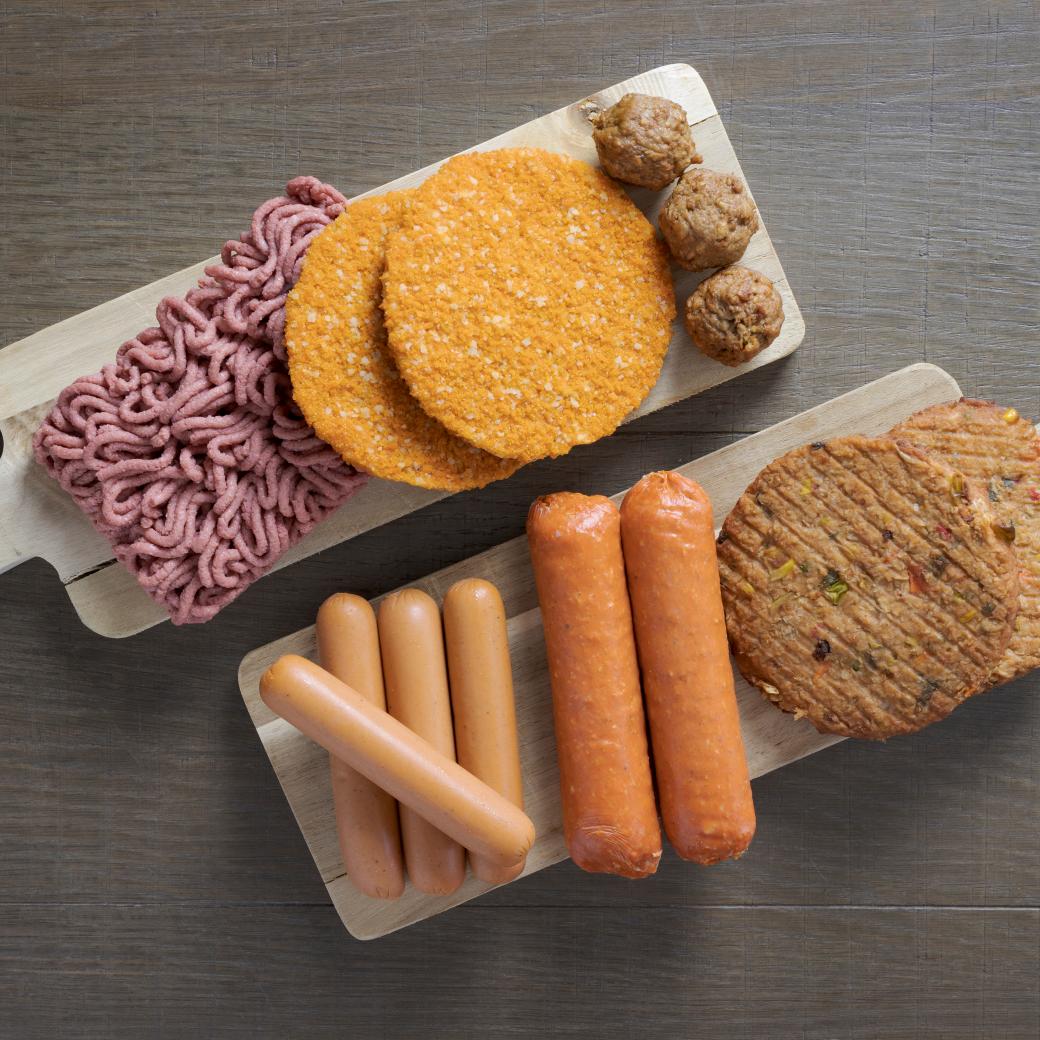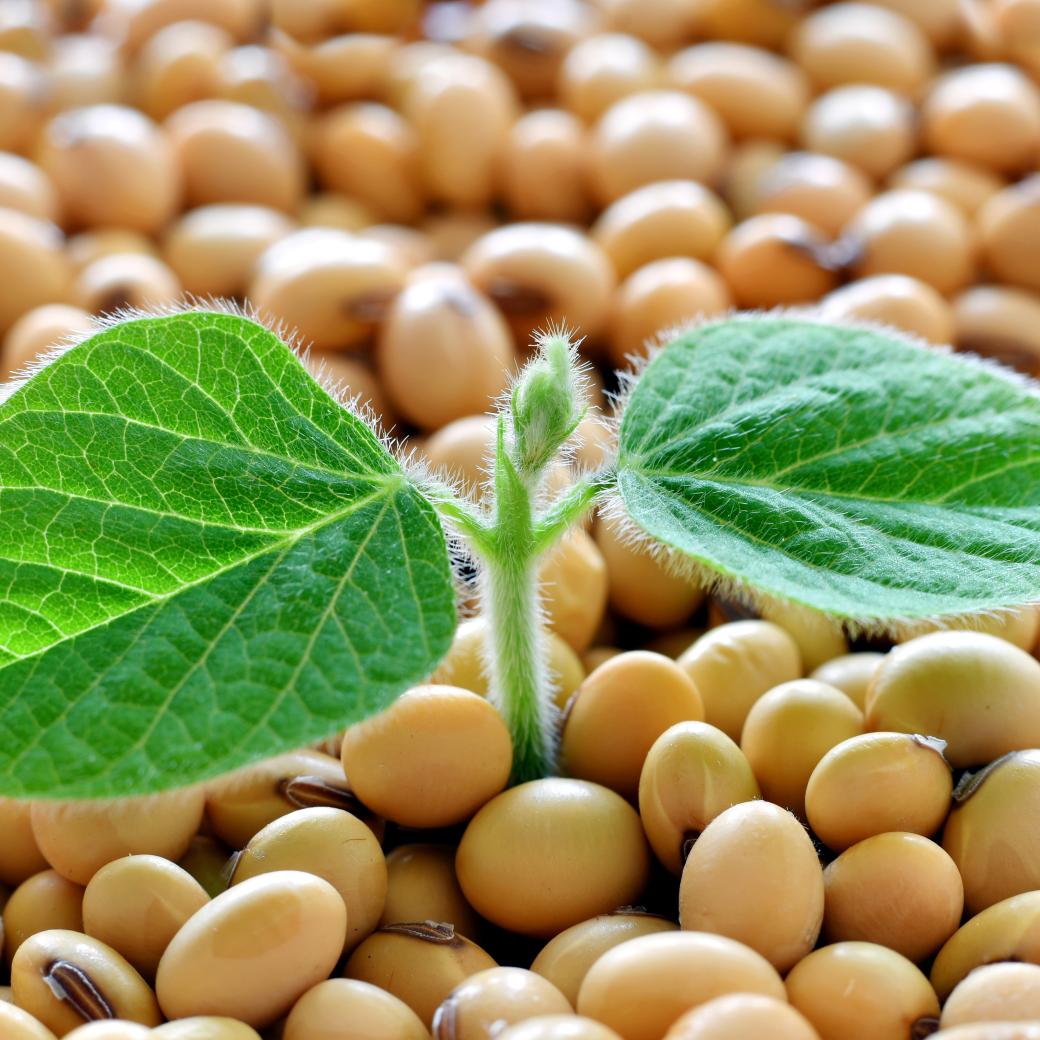TexProSoy
With support of:

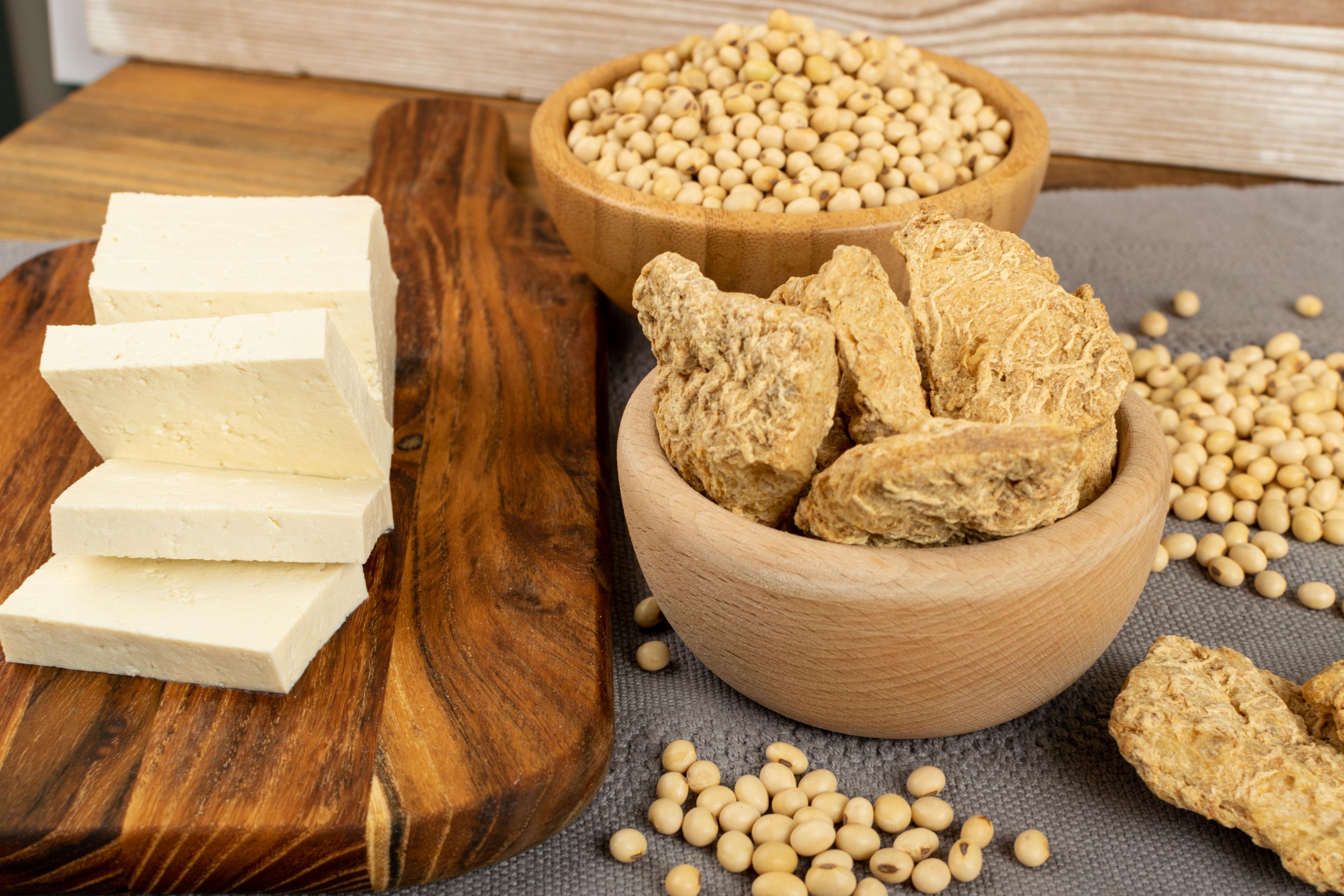
Research into the impact of processing steps on the technical, functional and nutritional properties of soy protein
Why this project?
Conscientious citizens adapt their consumption behaviour to contribute to sustainability, health, flavour, authenticity and animal welfare. This consumer demands more alternative plant-based protein sources on menu, which also contribute to a balanced meal.
With the food industry's increased interest in plant-based proteins, the lack of knowledge about the behaviour of these proteins during various processing stages is becoming a bottleneck for further exploitation. Therefore, we want to expand basic knowledge by conducting thorough research into the behaviour of plant-based proteins during the various processing stages (extraction, drying, extrusion).
High moisture extrusion (HME) of plant-based proteins is used in the production of various food products, such as meat substitutes. The extrusion process consists of three essential steps. During the first step, the plant-based protein powder is mixed with water in a twin-screw extruder until it becomes a homogeneous mass. In the second step, this mixture passes through a cooking zone in the extruder where heat and pressure are built up. During the last phase, the heated product is pushed through a mould equipped with a cooling element. The combination of heating under pressure and then cooling the protein-water mixture facilitates the texturising of the proteins into fibrous structures.
It is assumed that mainly mechanical and thermal shear tensions play a role in the formation of these structures. The protein denaturation during the process causes changes in the protein structure and makes aligning these proteins in the direction of the flow possible. The exact mechanism behind this is currently not completely known yet.
In this project, Flemish soybeans with known cultivation conditions are used as raw materials. We also build upon knowledge from ILVO about the cultivation of soy varieties in our region (Soy2Grow). The complete processing chain from soybean to finished product is studied, with a focus on the qualities of the soy protein throughout the process.
Research approach
TexProSoy is a collective, fundamental research project (type SBO) with the objective of expanding knowledge about the mechanism of fibrous structure formation during HME. Specifically, the research consists of the following parts:
- Characterising various soy varieties to map out the composition and qualities of the raw materials
- Studying the effect of process parameters during extraction on the proteins of these soybeans and characterising the resulting protein extract and the by-products
- Studying the impact of the HME process on macro- and microscopical qualities of the soy proteins to gain insight into the structure formation during the extrusion process
- Studying the impact of modifications to the source materials by the HME process, such as addition of various reagents and non-protein soy constituents to identify their role in the structure formation
- Determining the nutritional qualities (bioavailability, anti-nutritional components) and evaluating the flavour of the extrusion product
Project partners
Flanders’ FOOD coordinated this research project. Responsible for the execution were:
- The Laboratory for Food Chemistry and Biochemistry from KU Leuven (Prof. Arno Wouters, Prof. Jan Delcour and Dr. Kristof Brijs)
- Technology and Food Department from the Institute for Agricultural, Fisheries and Food Research (Dr. Bart Van Droogenbroeck and Dr. Geert Van Royen)an Royen)
Contact Flanders' FOOD
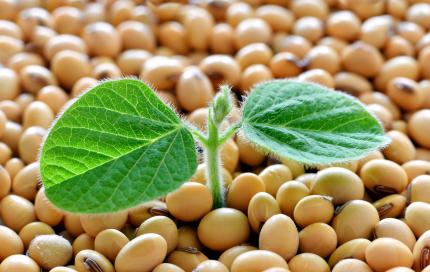
De impact van verwerking op de structuur van eiwit-extrudaten: resultaten uit het TexProSoy-project
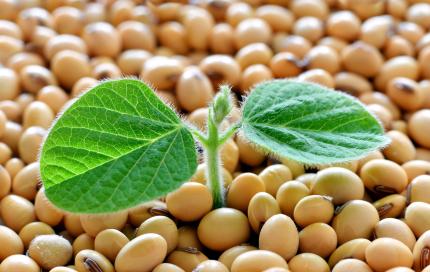
Een alternatief verdienmodel is nodig voor eiwitketens van Vlaamse bodem
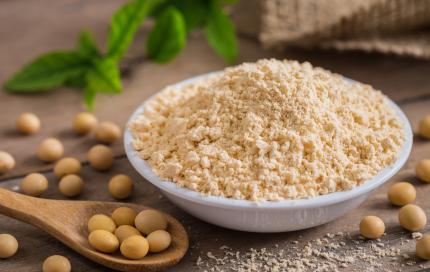
Sojameel: een eiwitrijk ingrediënt voor innovaties op kleine schaal





